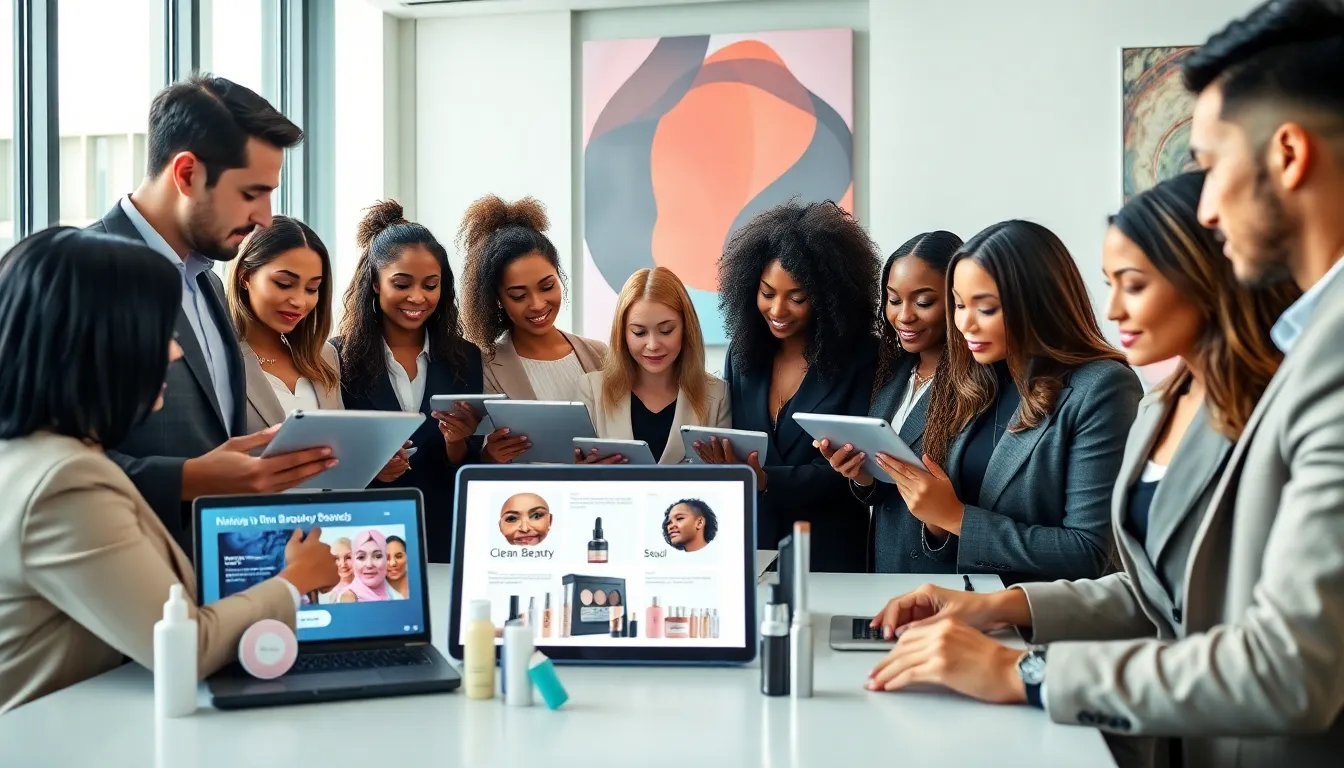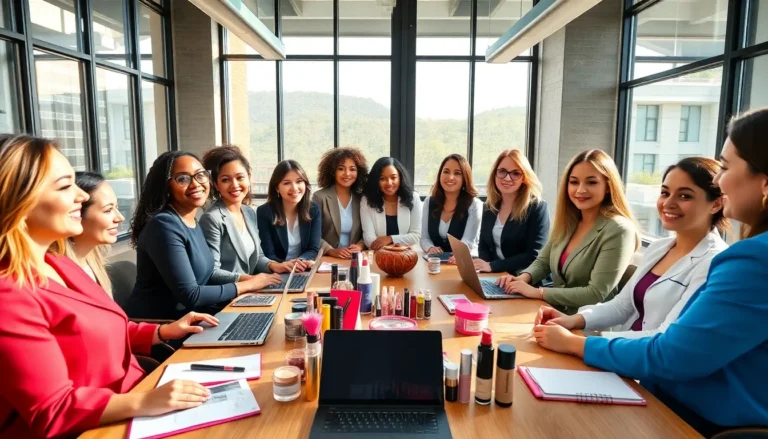The beauty industry, not just a sector but a massive cultural phenomenon, is a world where glitter and glam can obscure some serious business. With its flickering lights and colorful products, many underestimate the rigorous dynamics at play. From powerful corporations to innovative startups, everyone’s vying for a slice of a rapidly expanding pie. You might even think it’s all about selfies and influencers, but there’s a whole lot more brewing behind the scenes. So let’s jump into the intriguing realm of the beauty industry group, where tradition meets innovation and profits meet purpose.
Table of Contents
ToggleOverview of the Beauty Industry

Historical Development and Growth
The beauty industry has evolved dramatically over centuries, tracing its roots back to ancient civilizations that valued beauty as a symbol of status. The Egyptians popularized cosmetics, using kohl to accentuate their eyes while also adorning themselves with fragrances made from flowers and herbs. Fast forward to the early 20th century, and you’ll see mass production emerge, giving rise to household names like Estée Lauder and L’Oréal. Today, this industry is worth over $532 billion globally and has become a multi-faceted ecosystem encompassing skincare, makeup, fragrances, and haircare.
Major Trends Shaping the Industry
Currently, several trends are fundamentally reshaping the landscape. Clean beauty, characterized by products free from harmful chemicals, is gaining traction as consumers become more health-conscious. Also, inclusivity is not just a buzzword: brands are expanding their shade ranges and marketing strategies to cater to diverse populations. Finally, the integration of technology, such as augmented reality in virtual try-ons, is revolutionizing how consumers interact with beauty products.
Key Players in the Market
Influence of Technology on Beauty
Technology isn’t just a tool: it’s a game-changer in the beauty industry. Brands are harnessing the power of artificial intelligence to customize skincare routines and enhance customer service. Companies like Sephora and Ulta have introduced mobile apps that allow consumers to try on different shades virtually, making shopping experience efficient and fun. Besides, data analytics is paving the way for personalized marketing strategies, ensuring customers receive tailored recommendations that resonate with their unique preferences.
Sustainability and Ethical Practices
In today’s eco-conscious world, sustainability has transformed from a niche concept into mainstream practice. Companies are now adopting eco-friendly packaging, prioritizing cruelty-free formulations, and committing to ethical sourcing of ingredients. Brands like Fenty Beauty and The Body Shop are leading the charge, making it clear that consumers value transparency and responsibility in their beauty products. The push for ethical practices not only boosts brand loyalty but also aligns with the increasing demand for corporate social responsibility.
Regulatory Landscape and Compliance
Challenges Facing the Beauty Industry Group
The beauty industry operates within a complex regulatory framework aimed at ensuring consumer safety. But, navigating these regulations can pose challenges. For instance, varying standards across countries complicate international trade, while issues about misleading advertising claims can lead to legal ramifications. Also, the recent rise of synthetic biology necessitates a reevaluation of product safety protocols. Companies must stay vigilant to avoid penalties and maintain consumer trust, which rests on transparency and compliance.
Future Opportunities and Innovations
As the beauty industry ventures into the future, opportunities abound. Innovations such as personalized beauty subscriptions and enhanced e-commerce experiences are set to redefine how consumers engage with brands. The rise of health and wellness products further fuels this growth. Think beauty supplements and skin-nutrition-focused lines: these products represent an intersection of beauty and wellness that holds immense potential. Also, artificial intelligence will continue to forge a path toward more tailored consumer experiences, making beauty feel uniquely individual.



